National Mental Health MonthBy County of San Diego Health and Human Services . ...San Diego County Health and Human Services Agency (HHSA) officials are reminding people that the County offers treatment programs for those with mental health problems to help them lead healthy, normal lives. ...“A person’s mental health is key to leading fulfilling, healthy, and productive lives,” said Alfredo Aguirre, Deputy Director for HHSA’s Mental Health Services Division. “We want to remind people that they are not alone. We are here to help.” ...Mental health problems are more common in adults with 26 percent of people 18 and older—about 58 million—suffering from a diagnosable mental disorder. Furthermore, about six percent of adults suffer from a serious mental illness.Continued Making Mental Health Services a PriorityPamela B. Smith, Director, County's Aging & Independence Services
Nearly 20 percent of older adults experience some significant symptoms of mental illness. Most of those, about two-thirds, suffer in silence, without the treatment that could potentially improve the quality of their lives. Aging & Independence Services has the Senior Team, which is made up of licensed social workers and psychiatric nurses who are dispatched to evaluate older adults who may be having a mental health crisis. The Senior Team members ...Continued Alzheimer's is Not a Normal Part of Aging
...Alzheimer’s is a progressive and degenerative disease that attacks the brain destroying the brain cells and results in impaired memory, thinking and behavior such as inability to control bodily functions, difficulty in learning, impairment of judgment, and personality changes, Recent studies suggest that Hispanic/Latino individuals are at a three times greater risk of developing dementia due to increased risk of cardiovascular diseases – including stroke and diabetes. Currently, there are more than 42,000 Hispanic elderly adults in San Diego County, and with an estimated one in ten over age 65 with dementia, there are currently more than 4,000 Hispanic families coping with Alzheimer’s and related dementia. Aggravating this problem...Continued Having an IMPACT on DepressionPamela B. Smith, Director, County's Aging & Independence Services
A patient might go into the primary doctor and say, “I’m tired all ...Older adults are generally not forthcoming with their doctors when it comes to mental health problems. They focus instead on physical symptoms, says Dr. Unützer. Some patients don’t even think of their doctor as treating anything but physical problems. Dr. Unützer was the lead researcher in the largest treatment trial for late-life depression, which followed 1,801 depressed, older adults from 18 diverse primary care clinics across the United States. Half of the participants were enrolled in a depression treatment model called IMPACT. After a year of treatment in the study, IMPACT patients were more than twice as likely as patients in usual care to report at least a 50 percent reduction in depressive symptoms. Continued The Parkinson's Journey and The Help Along the Way By The Parkinson's Disease Association of San Diego
....No one knew how long Raquel had been hiding her symptoms. She After Raquel was diagnosed, she became embarrassed about letting others know what she was going through, so only family members knew she had the disease. Raquel became depressed about her prospects, which is fairly common following a Parkinson’s diagnosis. Parkinson’s disease is caused...Continued Mentoring Foster Teens to Independence Pamela B. Smith, Director, County's Aging & Independence Services
After leaving the system, 70 percent of youth report they would like to attend college, but fewer than 10 percent of those who graduate from high school enroll in college. Nationwide, only 46 percent of foster youth even complete high school. Nearly half of former foster youth experience homelessness within 18 months of emancipation and a quarter are incarcerated within two years. In the County of San Diego, multiple initiatives are changing these statistics in a positive way and supporting a former foster youth graduation rate 30 percent above the average. Continued |
|
|
|
Bienvenido a la primer revista dedicada al cuidado de la salud
 info
info
The first, the best & the only English & Spanish Magazine in San Diego, California
|
..OLDER ADULT MENTAL HEALTH SYSTEM OF CARE |
The County of San Diego’s Mental Health Services Department has conducted an extensive community input process to identify mental health needs and priority populations as part of MHSA, Prevention & Early Intervention (PEI) planning. The Older Adult Mental Health Services System of Care Council on the 3 rd. Wednesday each month from 12:30 to 2:30 p.m. at the Mission Valley Library Join us and provide input !!! Public input can be provided in different ways. |
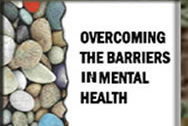 |
| Coping with the stress of natural disaster |
| Fire Victim Counsels Neighbors: “As The Heal, I Heal with Them” |
|
|
|
|
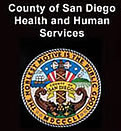




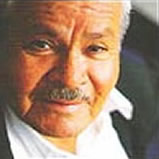
 loss of language skills, and it is the leading cause of alzheimers and dementia. The disease is so severe that it increasingly interferes with an individual’s daily functioning.
loss of language skills, and it is the leading cause of alzheimers and dementia. The disease is so severe that it increasingly interferes with an individual’s daily functioning.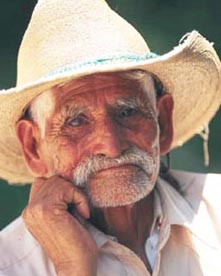 the time,” but the patient doesn’t tell the doctor he or she is having problems with stress, anxiety and depression, says Dr. Jürgen Unützer, a geriatric psychiatrist and researcher at the University of Washington. So the emotional root of the physical problem may never be treated.
the time,” but the patient doesn’t tell the doctor he or she is having problems with stress, anxiety and depression, says Dr. Jürgen Unützer, a geriatric psychiatrist and researcher at the University of Washington. So the emotional root of the physical problem may never be treated. 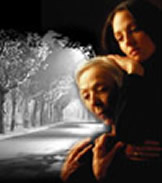 was afraid of what was happening, since she had seen her brother and sister experience the same physical changes. When it was no longer possible to hide her symptoms, Raquel decided to make an appointment with her primary care doctor. Her doctor referred her to a Neurologist, a doctor that specializes in movement disorders; and when the doctor saw Raquel’s shaking tremor, he confirmed that she had Parkinson’s disease. Parkinson’s physical symptoms include resting Tremor (shaking of hands or feet), rigidity of the spine, slow movements and development of a stooped posture.
was afraid of what was happening, since she had seen her brother and sister experience the same physical changes. When it was no longer possible to hide her symptoms, Raquel decided to make an appointment with her primary care doctor. Her doctor referred her to a Neurologist, a doctor that specializes in movement disorders; and when the doctor saw Raquel’s shaking tremor, he confirmed that she had Parkinson’s disease. Parkinson’s physical symptoms include resting Tremor (shaking of hands or feet), rigidity of the spine, slow movements and development of a stooped posture. they have been returned to families or adopted.
they have been returned to families or adopted.